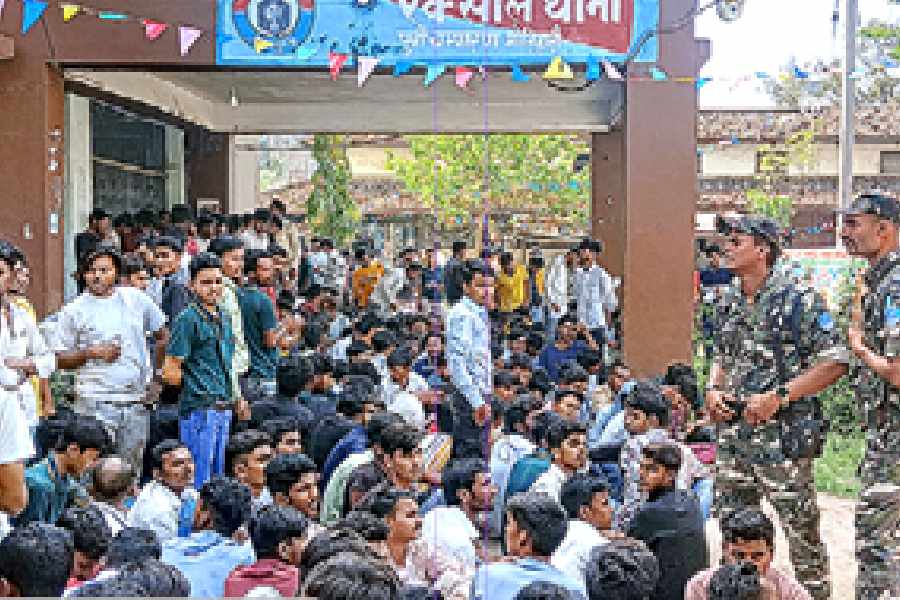The Bihar police and the Sashastra Seema Bal (SSB) on Saturday conducted a joint operation in Raxaul in East Champaran district along the Indo-Nepal border and rescued over 400 youths and children held captive by a network marketing company.
The rescued people were from Bihar, Uttar Pradesh, Jharkhand, Bengal, Assam, Rajasthan and Nepal. The network marketing company identified as DBR Group had lured them on the pretext of providing jobs related to packaging and selling various goods, with a salary of ₹10,000 to ₹15,000 per month.
Once they reached Raxaul, they were confined at different locations and their families were forced to pay ₹5,000 to ₹10,000 per month as charges towards food and lodging and ₹20,000 for their safety. The network marketing company had evolved into a continuous money-generating racket.
East Champaran superintendent of police (SP) Swarn Prabhat told The Telegraph that the operation was conducted based on intelligence inputs.
“We conducted raids with help from the SSB, rescuing around 400 youths and minors so far. We have informed the labour enforcement officers about this as per the legal provisions. Further action is being taken based on the statements of the rescued people. We have also arrested five people, including the owner of the group. They are being questioned,” said Prabhat.
“A special investigation team (SIT) has been formed under the sub-divisional police officer (SDPO) to investigate and destroy the entire network. We will conduct an in-depth probe into the racket. The youths and minors were held hostage by the group involved and their relatives were forced to pay money regularly for their safety and upkeep,” he added.
The police and SSB teams of over 100 constables and jawans were involved in the raids that covered at least 10 premises where the captive people were kept.
“The rescued youths and children are so afraid and in such a mental condition that they are afraid of telling anything to the police. They are being counselled by child rights groups and psychiatrists. Efforts were being made to contact their families,” a senior police officer said.
Sources said that the people involved in the racket threatened to harm or kill the captives if their families or guardians did not cough up the money. They asserted that the group was also connected to international human trafficking and added that the local police were patronising it.











